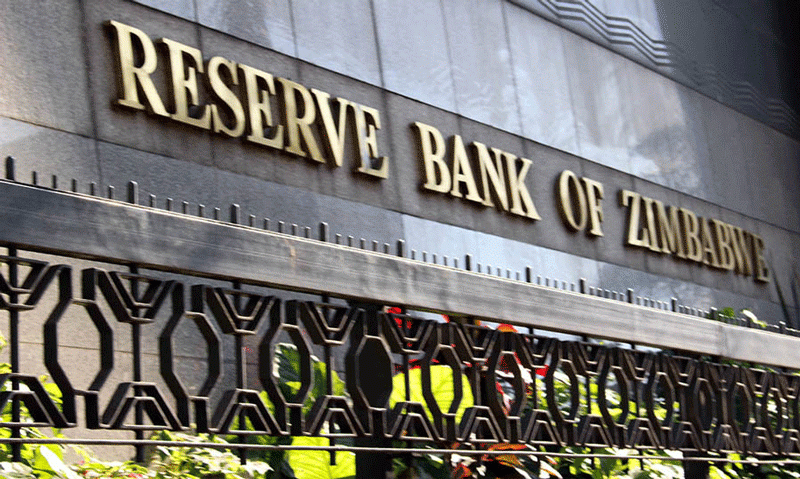
Media Institute of Southern Africa (Misa) Zimbabwe last week published the 2021 state of the media report, which takes a look at the media landscape and operating environment with regards to freedom of expression, access to information, digital rights, media sustainability and media freedom in Zimbabwe.
Below is an excerpt from the report:
United Nations Special Rapporteur on the Rights to Freedom of Peaceful Assembly and of Association, Clement Nyaletsossi Voule, following a visit to Zimbabwe in 2019, noted in a subsequent report that Zimbabwe was suffering from political polarisation and poor governance.
The Special Rapporteur noted then, that civic space continued to deteriorate, re-establishing an environment of fear and persecution.
The UN Special Rapporteur’s report came on the backdrop of his visit to Zimbabwe on September 17 – 27, 2019 at the invitation of the Government. The purpose of the visit was to assess the exercise, promotion and protection of the rights under his mandate in a moment of transition following the adoption of the new Constitution in 2013 and the change of leadership in Zimbabwe.
He urged the government to take action to end corruption, and tellingly, to improve the human rights situation and ensure accountability and rule of law to encourage the lifting of “measures” imposed on Zimbabwe.
The Special Rapporteur recommended for the repeal of legislation that is inconsistent with the Constitution particularly that affecting the exercise of fundamental freedoms.
He also said steps should be taken to ensure that all those monitoring assemblies, including journalists, media workers and human rights defenders, are allowed to do so and are protected at all times during assemblies and that violations are duly investigated.
- Chamisa under fire over US$120K donation
- Mavhunga puts DeMbare into Chibuku quarterfinals
- Pension funds bet on Cabora Bassa oilfields
- Councils defy govt fire tender directive
Keep Reading
The government was also urged to refrain from introducing restrictions on access to and the use of the internet, including shutdowns.
His observations then came prior to the gazetting of the Private Voluntary Organisations (PVO) Amendment Bill at the end of 2021.
If enacted, the PVO Amendment Bill threatens to muzzle the work of civic society and negatively impact on the operating media freedom and freedom of expression and free expression environment ahead of Zimbabwe’s 2023 general elections.
The gazetting of the PVO Amendment Bill also came on the backdrop of Zimbabwe’s slippage in the Reporters Without Borders’ 2021 media freedom rankings.
Zimbabwe slid in the rankings, falling from 126 to 130.
The downside of these developments should, however, be viewed on the progress made on the access to information front following the enactment of the Freedom of Information Act as well as the marked reduction in the number of media freedom violations in 2021 compared to 2020.
Zimbabwe’s 2013 Constitution explicitly provides for the right to access to information, freedom of expression and of the media, among other progressive provisions under its Bill of Rights.
In that regard, commendable steps were taken to give effect to the enjoyment of the right to freedom of information through the enactment of the Freedom of Information Act in 2020 in place of the widely discredited Access to Information and Protection of Privacy Act (Aippa).
The new information law is a progressive step towards fostering citizens’ right to access to information. Other commendable developments include the licensing of the country’s first-ever community radio stations and ‘private’ commercial television stations.
However, these progressive steps risk being marred by some claw-back provisions in some of the laws such as the Data Protection Act (despite some of its progressive provisions) and the gazetted PVO Amendment Bill.
Further, the Government of Zimbabwe is drafting amendments to the Criminal Law (Codification and Reforms) Act aimed at criminalising engagements between citizens of Zimbabwe and foreign embassies without government approval.
The Ministry of Justice, Legal and Parliamentary Affairs on November 16, 2021, made submissions to the Parliamentary Portfolio Committee on Foreign Affairs and International Trade on the status of the principles of the proposals to regulate Zimbabwean citizens’ engagement with foreign governments.
In a virtual presentation to the Committee, the Ministry’s Law Officer — Policy and Legal Research Department, Ms P. Dhokwani, noted that the principles which are set to amend the Criminal Law (Codification and Reform) Act were approved by Cabinet and were now with the drafters.
These two proposed legislative steps have far-reaching impact on the ability of civil society to perform its duties within the borders of Zimbabwe.
In essence, the laws seek to criminalise civil society’s work at a magnitude never witnessed before in the history of Zimbabwe as a solitary state.
- Way forward The outstanding Broadcasting Services Amendment Bill should be benchmarked on the principles of the African Charter on Broadcasting to secure a regulatory framework that stimulates the growth, sustainability and editorial independence of the broadcasting industry.
- Theproposed Zimbabwe Media Practitioners Bill should encompass the media industry’s input into the draft that was compiled by media players through the nationwide consultative processes for effective co-regulation of the media.
- The Broadcasting Authority of Zimbabwe should ensure that the Media Development Fund is channelled towards the viability and sustainability of community radio stations as they are the heartbeat of development and democracy at community and grassroots levels.
- Ensure diversity in the languages used to disseminate Covid-19 related information to ensure all Zimbabweans are included in discussions on the pandemic and other related developments. Steps should thus be taken to ensure daily Covid-19 updates are in all the official languages of Zimbabwe.
- There is a need to escalate training and awareness programmes to familiarise both citizens and public institutions with the Freedom of Information Act and the freedom of information regulations.
- As mentioned in our 2020 State of the Media Report, the government should seriously consider coming up with a Media Sustainability Bailout Rescue Package.This can be in the form of tax/duty exemptions and moratoriums (over a realistically determined period), on newsprint and other mass media production and distribution equipment.
- Laws such as the Censorship and Entertainment Controls Act, Official Secrets Act, sections of the Criminal Law (Codification and Reform) Act, Interception of Communications Act, among others, should be reviewed and aligned with the Constitution.
- Any proposed new laws should be in line with domestic constitutional provisions, regional and international best practices.
- As Zimbabwe heads towards the elections in 2023,political parties and the police should ensure the safety and security of journalists during campaign rallies and at all times to avert the media freedom violations that contribute to Zimbabwe’s incessant low global media freedom rankings.
- Journalists should, and without fail, always strive for balance and fairness in their reportage and stories. In that regard, media professionalism is the very first line of defence for journalists as it is at the heart of media credibility and integrity.
- Equally, journalists should familiarise themselves with the profession’s safety and security guidelines to minimise the risks that come with their chosen profession.
- Journalists should avoid taking part in politics if one’s mind is not yet made up as to which of the two,they want to pursue. Participating in political processes and returning to the newsroom upon failure to make it in politics presents serious ethical dilemmas for the industry.
- Policymakers, consumers, private companies, civil society organisations and Postal and Telecommunications Regulatory Authority of Zimbabwe (Potraz) should have meaningful, truthful and open conversations for purposes of addressing Zimbabwe’s high data costs, which are detrimental to citizens’ right to free expression and access to information.
- The Zimbabwe Media Commission(ZMC)should seriously consider revising the accreditationof journalists from the current one-year period towards a two –five-year period, renewable before the expiry of the accreditation period to safeguard journalists against being exposed to the dangers that come with usingexpired cards.
- Further, the ZMC should include in its accreditation packagesfor journalists clearly markedmedia jacketsfor easy identificationin addition to the issuance of accreditation cards. This can be achieved through the utilisation of the Media Development Fund.
- Misa–Zimbabwe is one of the 11 chapters of the Media Institute of Southern Africa, which promotes and defends media freedom and freedom of expression across the Southern Africa Development Community (Sadc) region.











